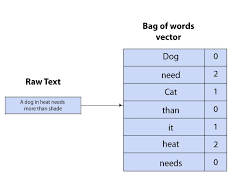AI Agents: Key Statistics and Trends for 2025
“The agent revolution is real and as exciting as the cloud, social, and mobile revolutions,” remarked Salesforce Chair and CEO Marc Benioff. “It will provide a level of transformation that we’ve never seen.”
With the general availability of Agentforce, the era of AI-powered agents is officially here. These intelligent software agents, designed to perform tasks autonomously or in collaboration with humans, are already transforming businesses by driving efficiency and improving customer outcomes.
AI Agents in Action
Companies across the globe are leveraging AI agents to achieve remarkable results. For example, Wiley has seen a 40% boost in case resolution rates with Agentforce, far surpassing their previous bot’s performance. Other success stories from Saks and Opentable reinforce the ROI potential of this groundbreaking technology.
Salesforce research highlights data from consumers, employees, and business leaders worldwide, demonstrating how AI agents address key pain points while unlocking significant opportunities for enterprises and individuals alike.
🔔🔔 Follow us on LinkedIn 🔔🔔
Why Consumers Need AI Agents
Traditional customer service processes often frustrate consumers, leading to inefficiency and dissatisfaction:
- 87% of U.S. consumers report being transferred at least once during customer service interactions.
- 67% are frustrated when issues cannot be resolved instantly.
- Nearly one-third of customer service interactions end without resolution.
- The longest time reported by U.S. consumers to resolve a single issue is nine hours—longer than a workday.
- Knowledge bases, while useful, can be cumbersome for humans to navigate but create a seamless process for AI agents.
AI agents are transforming this landscape with immediate, personalized assistance that minimizes wait times and eliminates repeated explanations. Consumer sentiment indicates a growing acceptance of this technology:
- 54% of consumers don’t care how they interact with a company, as long as their problems are resolved quickly.
- 33% of consumers prefer automated or digital purchasing options.
- 39% of consumers are comfortable with AI agents scheduling appointments, while 32% of Gen Z consumers are open to AI agents shopping for them.
- 34% of consumers would choose AI agents over humans to avoid repeating themselves.
- 37% of consumers, including 44% of Gen Z, are comfortable with AI agents creating personalized content.
Why Enterprises Need AI Agents
For enterprises, inefficiency is a persistent challenge. Time-consuming administrative tasks often prevent workers from focusing on strategic, customer-centric activities:
- 71% of sales reps spend their time on non-selling tasks, such as data entry.
- 66% of service reps’ time is consumed by non-customer-facing activities.
- 85% of customer service reps using AI report significant time savings.
AI adoption is increasingly a priority for revenue-generating teams, with measurable benefits:
- 83% of AI-enabled sales teams reported revenue growth, compared to 66% of non-AI teams.
- 76% of ecommerce teams credit AI with revenue growth.
- 92% of service teams say AI reduces operational costs.
Salesforce experts emphasize that while AI has already proven its value in service, sales, marketing, and commerce, the surface of its potential has only just been scratched.
The Agent-First Future
As organizations adopt an agent-first approach, they unlock opportunities to redefine operations, increase efficiency, and drive innovation:
- Adam Evans, SVP Product, Salesforce AI Platform:
“We’re at a pivotal moment where every business, CEO, manager, and employee has the chance to reimagine what it means to get work done. By embracing an agent-first approach, every business can redefine their operations and stay ahead – right now.”
AI agents are not just the future—they’re the present solution to enduring challenges, empowering businesses to meet the demands of a rapidly evolving digital economy.













